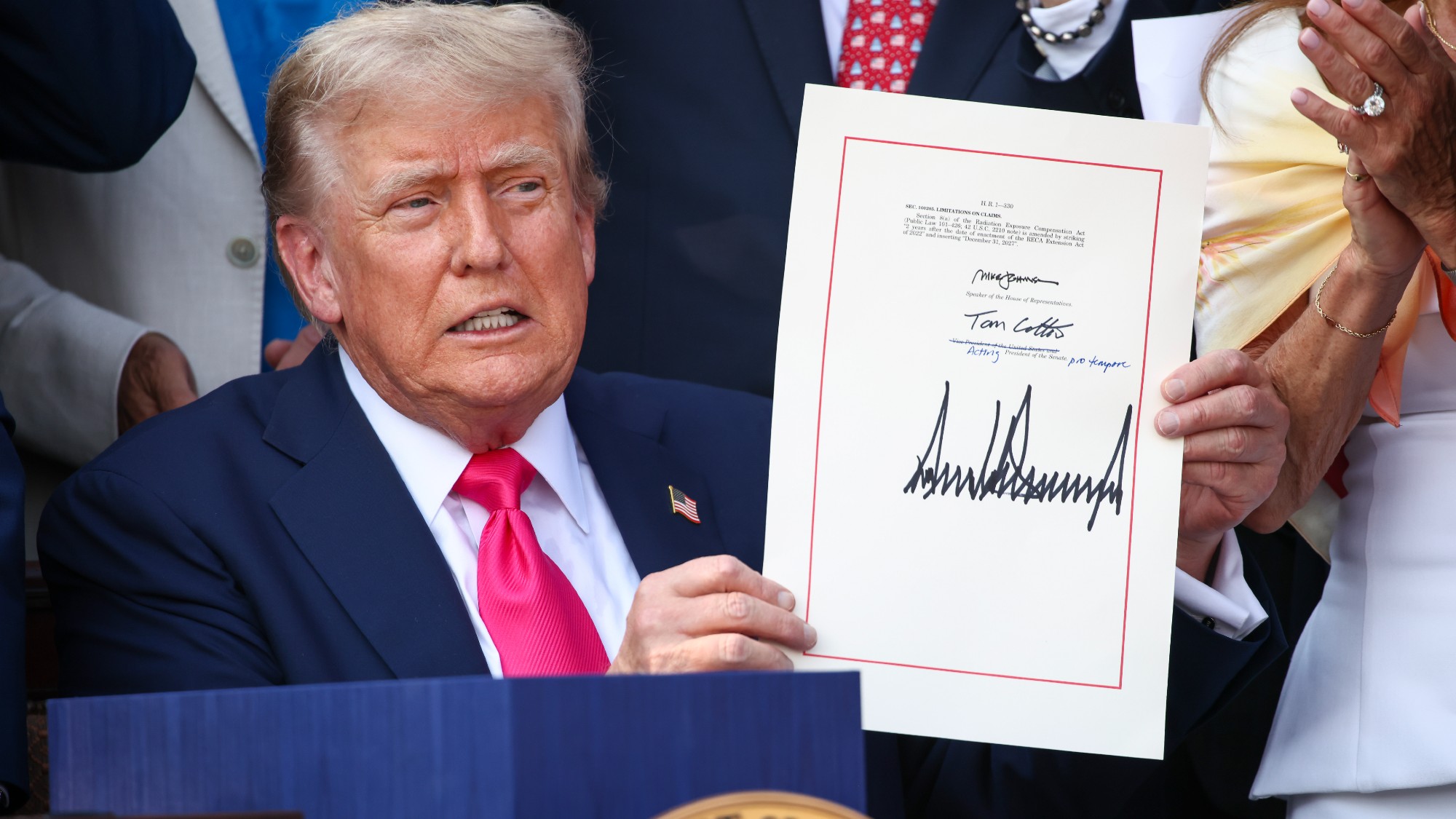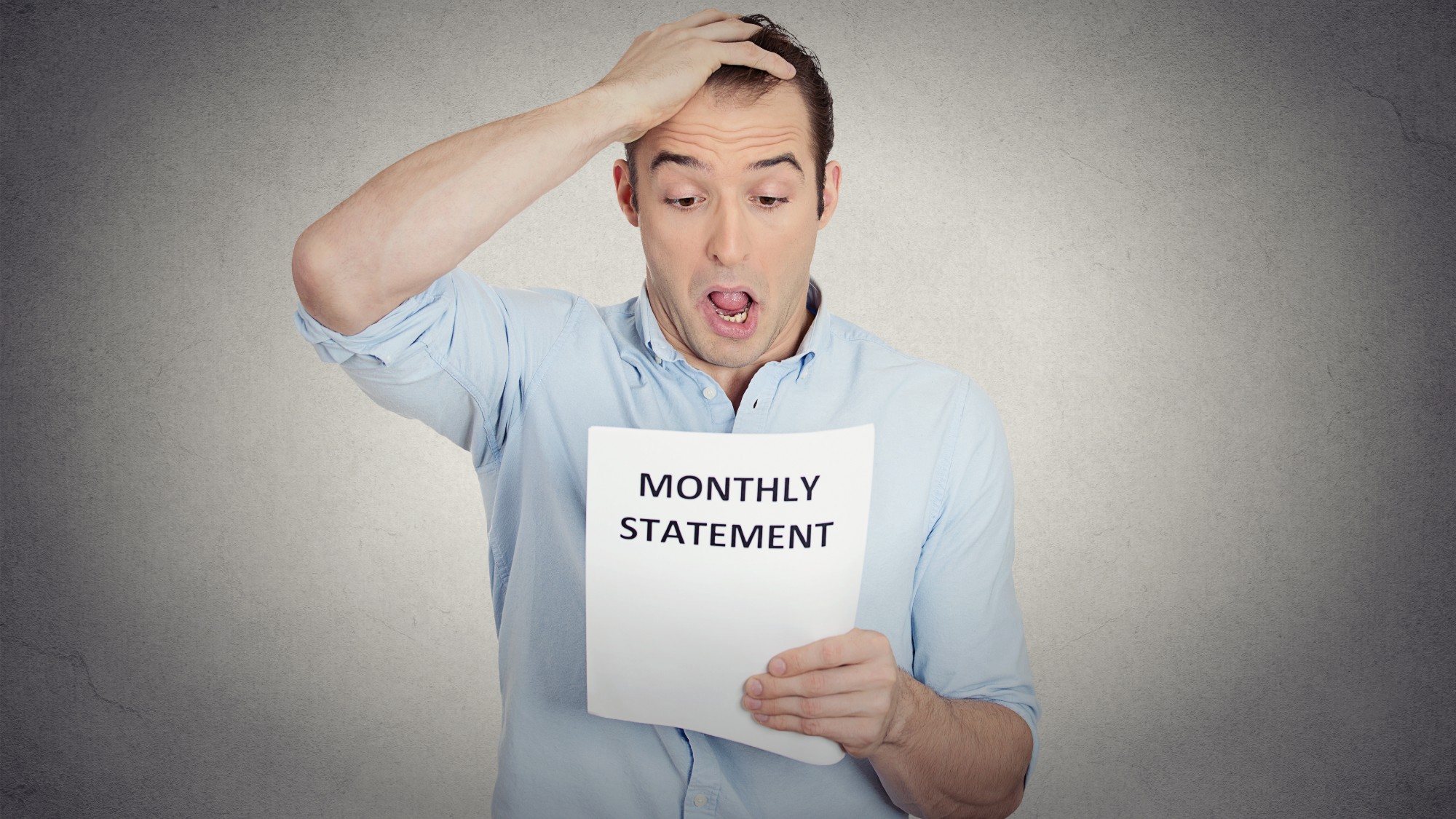How to find cheaper car insurance as premiums accelerate
Car insurance costs are rising but there are ways to put the brakes on price rises

Car insurance premiums are on the rise but there are ways to cut the costs.
Data from the Association of British Insurers (ABI) shows motorists paid an average of 25% more annually for their car cover in 2023.
More recent figures from researcher Consumer Intelligence shows the average quoted price of car insurance rose by 56.4% in the year to February 2024, to between £500 and £749 on average.
Subscribe to The Week
Escape your echo chamber. Get the facts behind the news, plus analysis from multiple perspectives.

Sign up for The Week's Free Newsletters
From our morning news briefing to a weekly Good News Newsletter, get the best of The Week delivered directly to your inbox.
From our morning news briefing to a weekly Good News Newsletter, get the best of The Week delivered directly to your inbox.
Younger drivers in particular are facing "extortionate insurance premiums" of more than £2,000, said the Daily Telegraph.
It means drivers are desperately searching for ways to cut the costs of car cover.
Why is car insurance so expensive?
Many drivers will rightly feel that car insurance costs are "spiralling out of control", said Auto Express. There are an "array of new challenges" facing car insurers, the motoring website added, including"rampant recent inflation", while the rise of electric cars is causing "skills gaps and delays at repair shops".
The ABI highlighted that insurers have reported increases of 16% for materials, and 15% for labour, while some garages faced a 300% rise in their energy costs last year.
This means insurance payouts are rising, up 18% to £9.9 billion last year, passed on to consumers through premiums.
Drivers can "take some comfort" from the fact that the latest increase is lower than the 67.2% recorded in the year to the end of November and the 61% in the year to August 2023, added Consumer Intelligence. But it is "still the third highest annual increase" since the brand started tracking the figures 12 years ago.
How to cut car insurance costs
It is "vital to do everything possible to get the cheapest quote", said MoneySavingExpert, and this is particularly the case during a cost-of-living crisis.
Here are some tips and tricks to reduce your car cover costs.
Shop around
Prices may be high and "there are few competitive prices out there", said Which?, but you should use comparison websites to shop around for the best deals "before you commit to renewing or buying" a policy.
You can browse car insurance deals on comparison websites such as CompareTheMarket, Confused.com, MoneySuperMarket and uSwitch.
Choose the right level of cover
There are three main types of car insurance.
The minimum is third party, which protects you if you damage another vehicle. There is third-party fire and theft, which also provides cover for fire damage or if the car is stolen.
The "highest level of cover", said MoneyWeek, is comprehensive, which covers you, your car, and others and therefore "has your back in any eventuality".
Don't assume that third party will be cheapest though, added the financial website, as there are a "huge range of factors" that determine the cost of cover, including your vehicle, your age, occupation, and where you live.
Choose a cheaper car to insure
Cars are ranked into different insurance groups to determine the cost of cover, so it is worth checking the list before you buy.
Smaller, economic models in lower insurance groups are "cheaper to insure", said CompareTheMarket, in contrast to "those with more powerful engines in the higher groups".
Change how and what you pay
Insurance premiums are also determined by how much you are willing to pay to process a claim, known as the excess.
Your annual premium costs "may come down", said The AA, if you can afford to increase your voluntary excess by another £100 or £200.
Similarly, paying monthly "might feel cheaper than paying your premium in one go", said MoneySuperMarket, but insurers often add interest so "it will probably cost you more in the long run". You could therefore save money by paying annually in one go.
Add a named driver
Using a parent's "good insurance record" could help lower costs, particularly for younger drivers, said the Daily Telegraph, but be aware that "adding someone who has recently made an insurance claim could increase your quote".
Don't lie about the main driver though, warned the Daily Express. Known as "fronting", this is illegal and "can land drivers with six points on their licence and an unlimited fine, or a possible driving ban".
Alter your job details
Insurers see certain jobs as more high risk so if there is "more than one accurate description of your role", said uSwitch, a different category could save you money.
You must not lie though, added the comparison website, as "this can invalidate your insurance". So while you can change your job title, "if you are a circus clown, don't say you are a top civil servant".
Change your driving habits
Insurers will ask how much you plan to drive and if you have a low annual mileage then technically the "less time you are on the road, the less likely you are to have an accident", said ThisIsMoney. But lying about mileage can also invalidate your insurance, warned the financial website.
Another option, particularly for younger and less experienced drivers is black box or telematics insurance, which records your driving habits.
This means your car cover is "based on your actual driving habits rather than statistics", said BeWiserInsurance.
But there may be restrictions on when you drive, said 4youngdrivers, plus bad habits such as "regularly driving over the speed limit, hard braking or rapid acceleration, poor cornering or road positioning" could push up your premiums.
The art of negotiation
If all else fails, "you might be able to get the price down by haggling", said Which?.
Make sure you are ready for negotiation though, and are armed with "any cheaper quotes for the same level of coverage" to help secure a discount.
A free daily email with the biggest news stories of the day – and the best features from TheWeek.com
Marc Shoffman is an NCTJ-qualified award-winning freelance journalist, specialising in business, property and personal finance. He has a BA in multimedia journalism from Bournemouth University and a master’s in financial journalism from City University, London. His career began at FT Business trade publication Financial Adviser, during the 2008 banking crash. In 2013, he moved to MailOnline’s personal finance section This is Money, where he covered topics ranging from mortgages and pensions to investments and even a bit of Bitcoin. Since going freelance in 2016, his work has appeared in MoneyWeek, The Times, The Mail on Sunday and on the i news site.
-
 Art Review: Hilma af Klint's What Stands Behind the Flowers
Art Review: Hilma af Klint's What Stands Behind the FlowersFeature Museum of Modern Art, New York City, through Sept. 27
-
 Not just a number: how aging rates vary by country
Not just a number: how aging rates vary by countryThe explainer Inequality is a key factor
-
 'There will be a market incentive to build wind and solar anyway'
'There will be a market incentive to build wind and solar anyway'Instant Opinion Opinion, comment and editorials of the day
-
 How can you get the maximum Social Security retirement benefit?
How can you get the maximum Social Security retirement benefit?the explainer These steps can help boost the Social Security amount you receive
-
 How will Trump's spending bill impact student loans?
How will Trump's spending bill impact student loans?the explainer Here's what the Republicans' domestic policy bill means for current and former students
-
 8 ways Trump's bill will change your taxes
8 ways Trump's bill will change your taxesThe Explainer The 'big beautiful bill' was recently signed into law. Here's what it might mean for your wallet.
-
 3 questions to ask when deciding whether to repair or replace your broken appliance
3 questions to ask when deciding whether to repair or replace your broken appliancethe explainer There may be merit to fixing what you already have, but sometimes buying new is even more cost-effective
-
 How to navigate buying and selling a home at the same time
How to navigate buying and selling a home at the same timeThe Explainer Schedule the swap to reap the most financial benefits
-
 What to know about private equity in your 401(k)
What to know about private equity in your 401(k)the explainer BlackRock is making private investments available in employer-sponsored retirement plans
-
 4 tips to get a lower credit card APR
4 tips to get a lower credit card APRthe explainer Don't let your card's annual percentage rate balloon your balance
-
 Who has to pay the estate tax?
Who has to pay the estate tax?the explainer Trump's new bill will permanently shift who owes federal estate tax